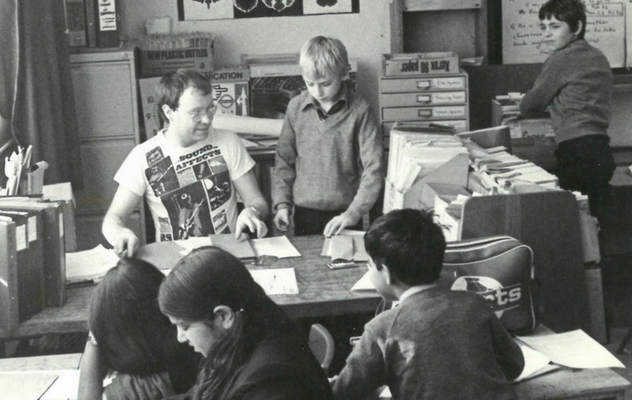
SMILE (Secondary Mathematics Individualised Learning Experiment) was a teacher-led curriculum development project. It began in 1972 and was committed to attainment teaching, teacher creativity and an investigative, problem-solving education.
Although based in London and supported by the Inner London Education Authority, it influenced thinking about mathematics teaching in the UK and elsewhere.
As part of a research project we recently completed, we have created a resource, based on the SMILE project. We hope this resource will give teachers access to the thinking, feelings and experiences of a different era.
We have explored stories from the past and recollections of SMILE to present an alternative to current framings of education.
We wanted to combat what John Berger has called a sense of ‘historic loneliness’. The phrase 'the end of history' has been bandied about to convey the idea that current ways of thinking are permanent, tending to cut us adrift from our past and to de-historicise our lived experience of the present.
“What we were teaching, before anything else, was how to live in a society peaceably and productively… All that business of living in a community was learnt really in the way that we were working.”
For the research project, we conducted extended interviews with groups of SMILE teachers from the 1970s and 1980s and immersed ourselves in as many editions of the project newsletter Splash as we could lay our hands on - almost all courtesy of STEM Learning’s SMILE collection.
The teachers looked through their old papers and dug out a variety of photographs which seemed to us to capture the spirit of the times. We also collected small fragments of data to give glimpses of the SMILE experience, telling excerpts which create a space for imagining. All these have contributed to the public archive.
“The key thing I learnt through working with other people and through SMILE is that it’s the questions you ask that are the important thing.”
Our hope is that the archive will support teachers in contextualising current practice, providing support for teachers to re-envisage what they are, what they might be and what they might become in their professional lives.
We identify the archive as lying within the radical histories tradition, placing hidden and forgotten stories on the record in order to, as the History Workshop puts it, "deepen understanding of the past … reflect upon present day issues and agitate for change in the world we live in now".
Find out more
SMILE is STEM Learning's most downloaded mathematics resource collection of 2017, as decided by UK-based teachers.

